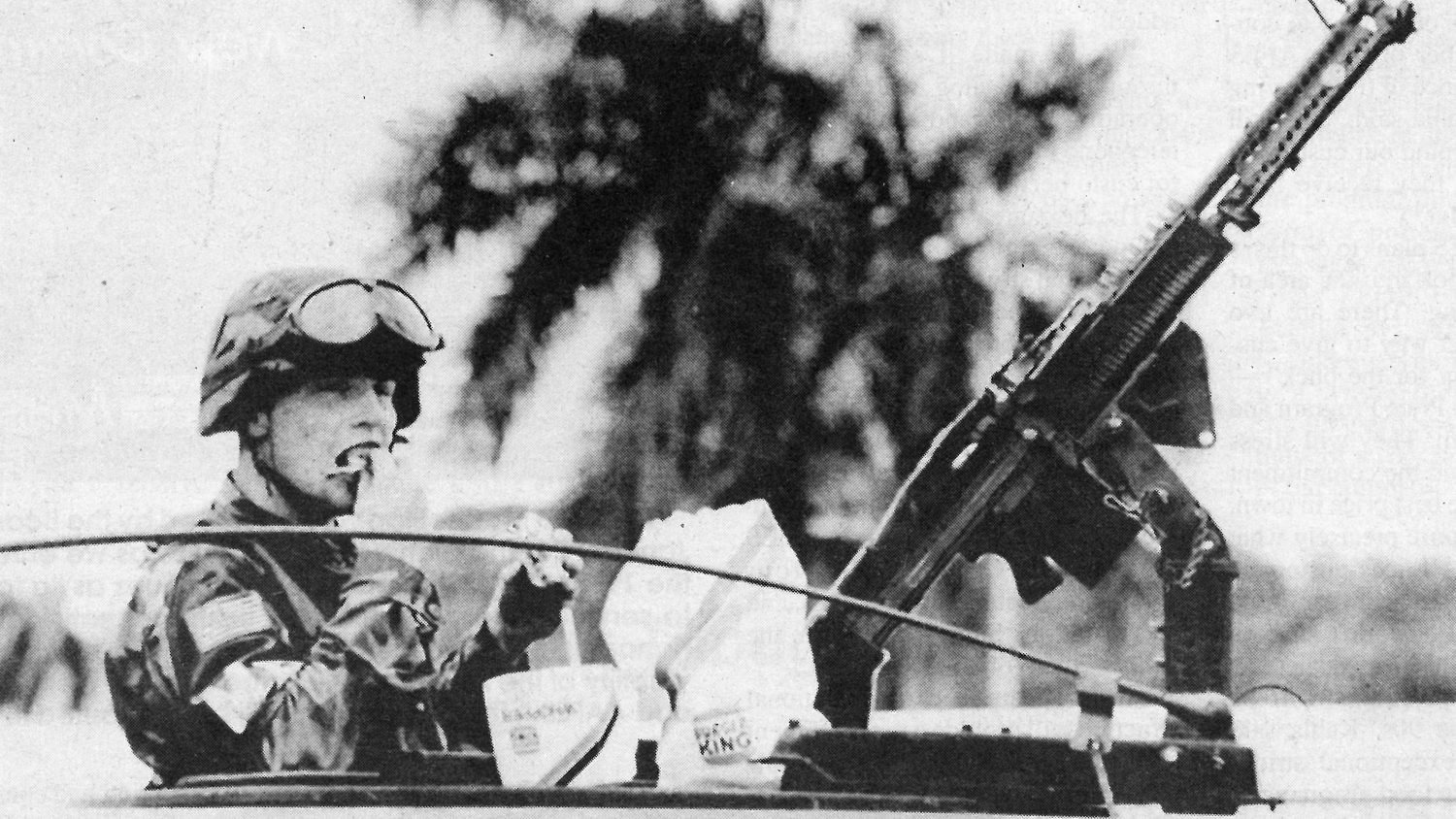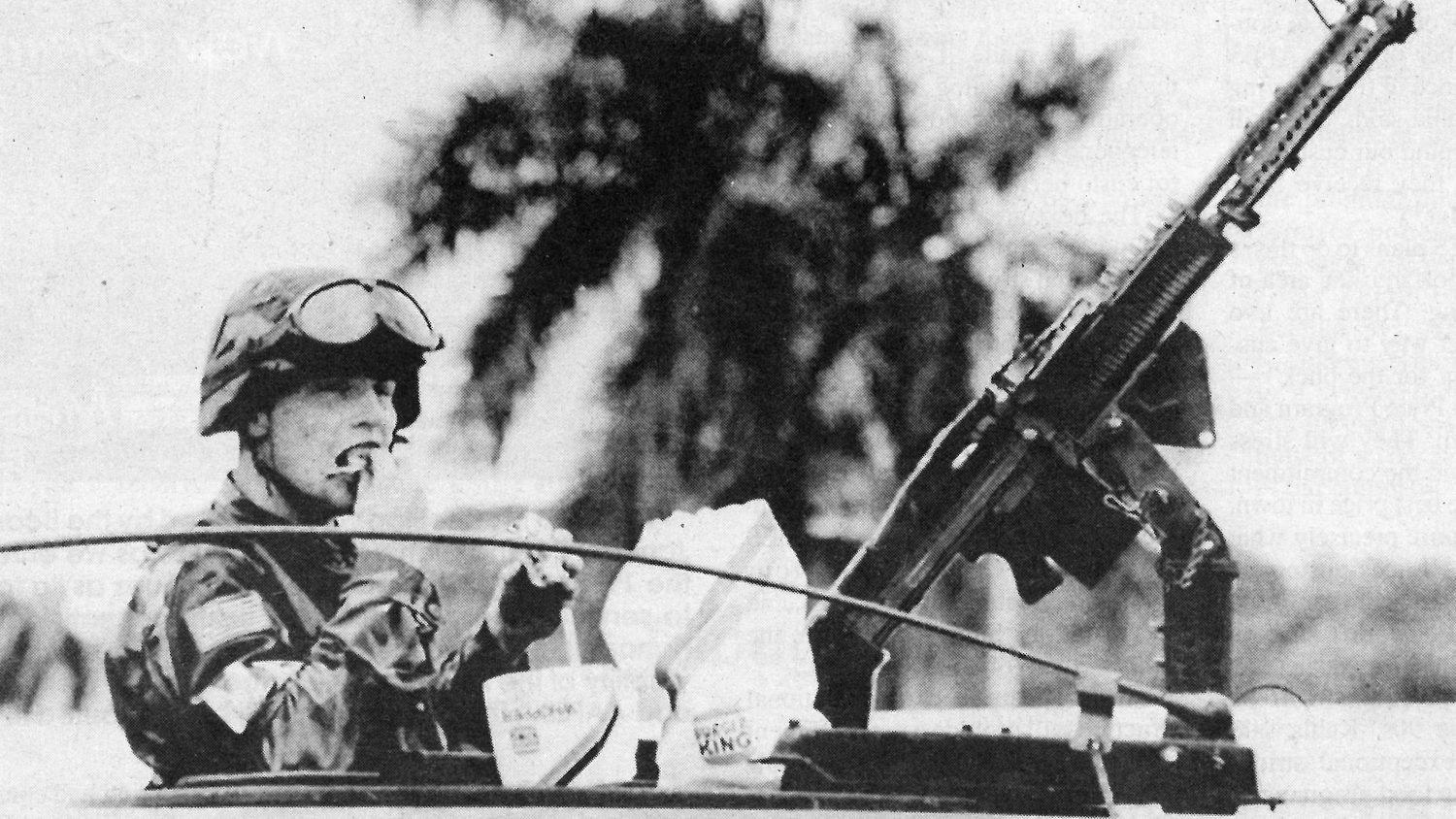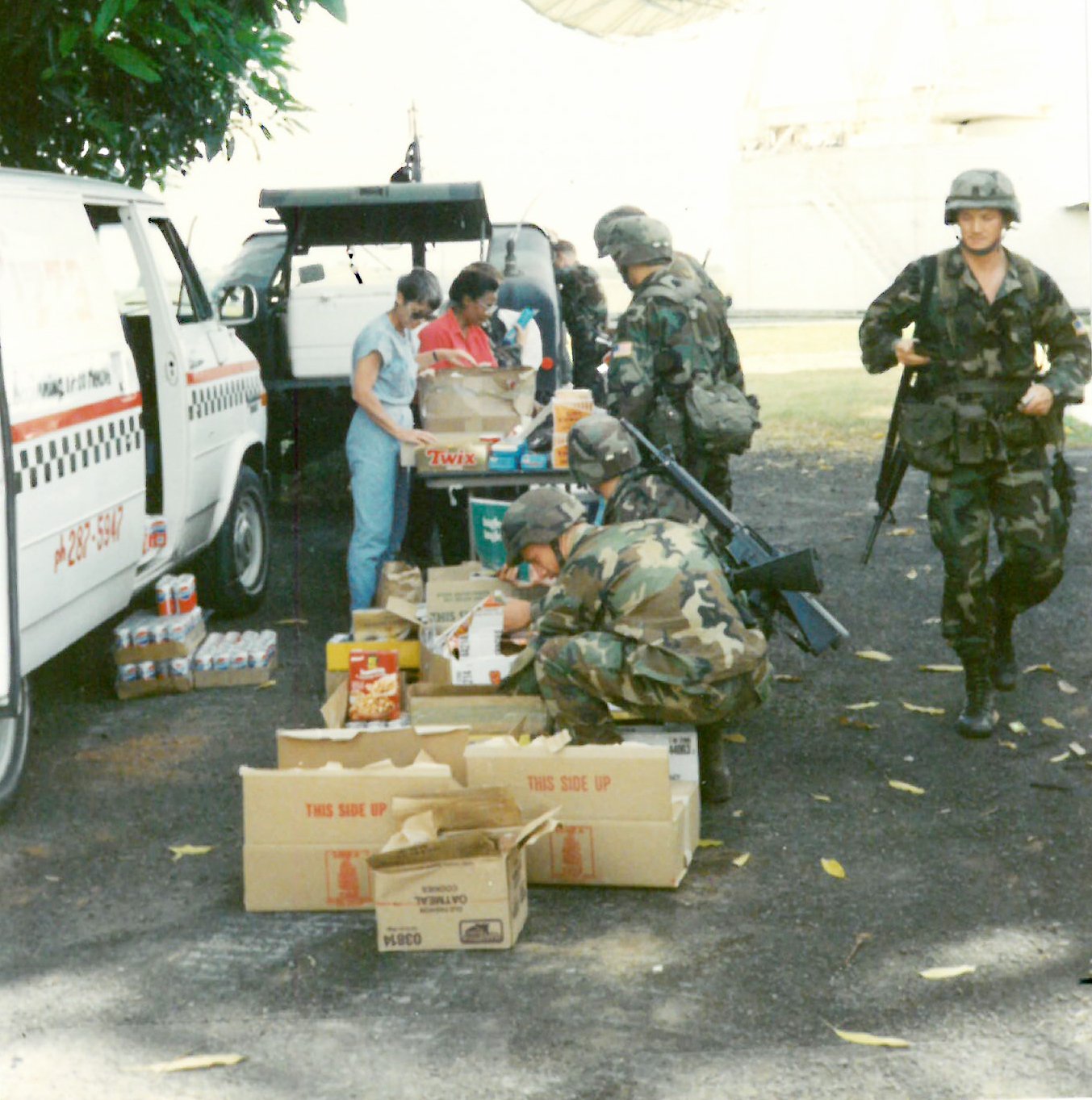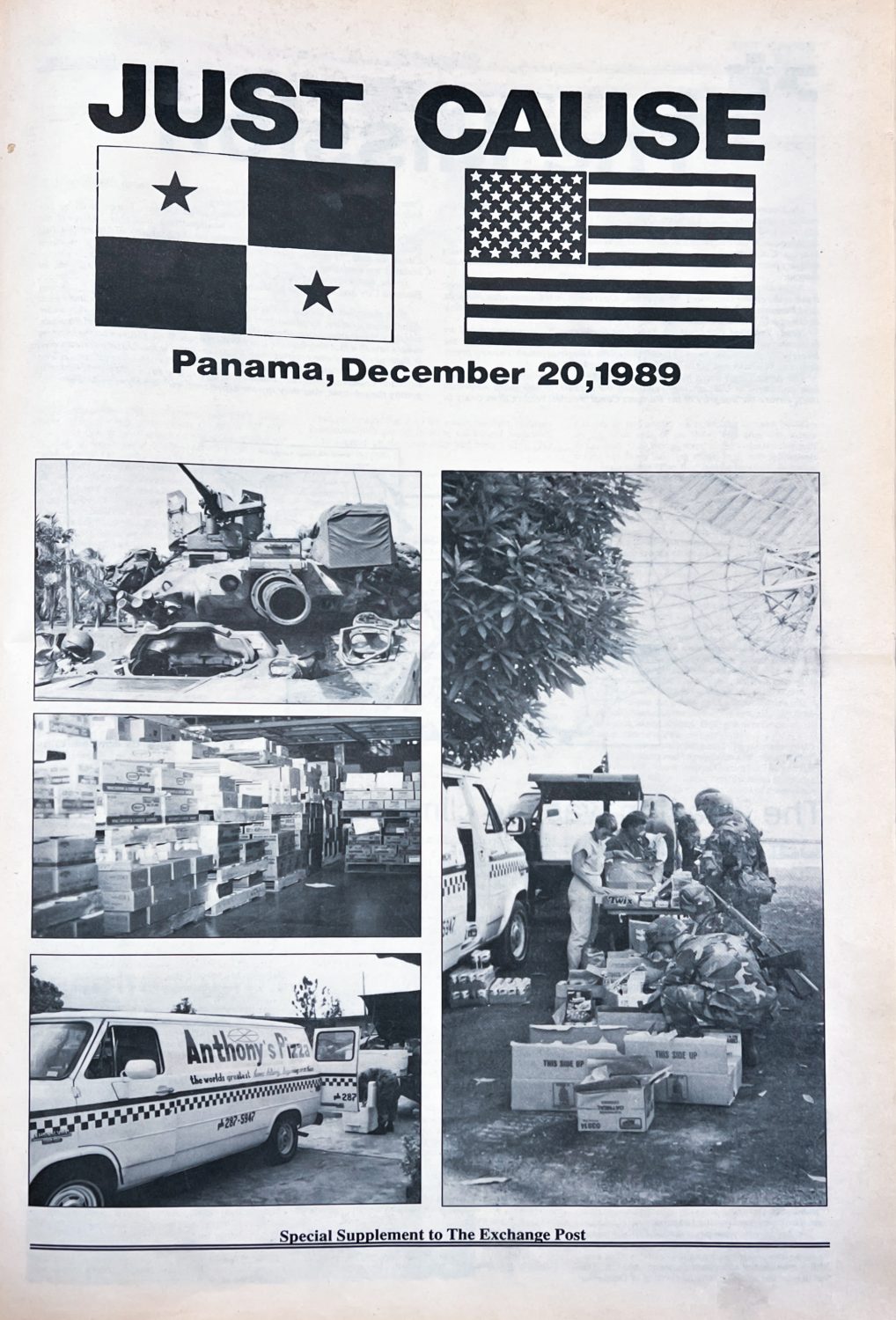#FlashbackFriday: In December ’89, Exchange Teams Executed a Difficult Holiday Mission in Panama

At 12:30 a.m. Dec. 20, 1989, President George H.W. Bush initiated Operation JUST CAUSE, sending 24,000 troops from every branch of the military to Panama to protect U.S. military bases in the country from an expected attack by Gen. Manuel Noriega’s troops.
The operation was ordered after the fatal shooting of a U.S. Marine lieutenant and Noriega’s declaration of war against the U.S. after voiding the May 7 election of Guillermo Endara. On Operation JUST CAUSE’s first day, U.S. troops gained control of the Panamanian Defence Force Building, the Panama Canal and U.S. military installations in the Central American Country.
And within the first 24 hours, the Exchange was preparing to support the largest U.S. military operation since the Vietnam War.

In this December 1989 photo, a military policeman takes a break for a meal from the Fort Clayton Exchange Burger King in Panama.
In Panama, the Exchange served the immediate needs of the troops. In the States, the Exchange provided emergency support to ensure that troops had supplies before they left for Panama and worked to prevent shortages in the country.
Some Panama-based Exchange personnel were moved from their homes across the street from Albrook Air Force Base. U.S. troops went door to door in neighborhoods where the fighting was most intense, shouting for people to get out. Exchange associates and other Americans had to crawl across a field while mortars exploded just yards away. Phone communications were cut.
By Dec. 21, the heaviest fighting was over and Panama General Manager Mike Bixby had assembled a team to open essential operations. Despite a lack of transportation and communications, not to mention still-dangerous streets, all essential Exchange facilities in the country were opened.

In this 1989 photo, an Exchange team unloads an Anthony’s Pizza van in Panama.
In a January-February 1990 Exchange Post story, associate Carlos Celis talked about rounding up associates to open the Albrook Shoppette and other facilities on Dec. 22. Celis also had to use a staff vehicle to transport associates to the bakery plant.
“They live in very hard to reach areas where no transportation was available,” he said. “These areas were full of paramilitary people and Dignity Battalions so there was still sporadic shooting … When I arrived at the area, the paramilitary shot near the car tires to make me stop.” Celis had worn a Red Cross insignia, thinking it might lead the guards to let him pass. His idea worked.
On Dec. 23, Celis picks up Toyland employees. “Christmas was right around the corner and kids were expecting their gifts,” he said. Celis provided cots and supplies so that managers and associates could stay overnight and be there when the store opened on Christmas Eve.

The Exchange Post had extensive coverage of Operation JUST CAUSE. This is the cover of an eight-page supplement that ran in the January-February 1990 issue.
Some store teams were so small that customers volunteered to help with bagging and stocking when lines became long. Exchange associates delivered bread to families who were restricted to housing areas. At Howard Air Force Base, the area food manager’s wife drove a truck to Corozal’s cold storage plant to pick up milk.
Christmas Eve shoppers had to be brought in by a government vehicle after being rescued from their homes during a blockade by Noriega’s Dignity Battalions. Two panel trucks were loaded with snacks, beverages, toiletries and more for delivery to the troops. Associates and even their family members volunteered to drive over dangerous, practically nonexistent roads to make the deliveries, accompanied by a military escort.
The trip to one communications site was a three-hour drive on a pothole-filled dirt road. The Exchange van was the only visitor to troops at the site.
Stateside, the Southeast Exchange Region contacted officials at Palmetto Baking Co. in Orangeburg, South Carolina, to see how they could help when the Exchange’s Panama bakery was shut down because of the fighting. The Palmetto bakery was already closed for Christmas, but the manager reopened when he learned that the order—8,000 loaves of bread and 1,500 packages of hamburger buns—was for the troops in Panama. Not only had the bakery closed for Christmas, it was in the middle of the heaviest snowstorm in a decade, but the South Carolina bakery completed the order and shipped it to Charleston Air Force Base the next afternoon. By Christmas, the baked goods were in Panama.
Wounded Warfighters were airlifted to Wilford Hall Medical Center in San Antonio, where the Exchange and concessionaire Miltel Company put the troops in touch with their families. At a time when cellphones weren’t common, Miltel representatives took a cellphone from bed to bed so that the troops could talk to their families. The Exchange also gave movie passes and about 300 Burger King meals to family members who visited the hospital.
The United States withdrew from Panama in 1999, ending an 88-year presence. The Exchange still operates a Central American store at Soto Cano Air Base in Honduras.
Sources: One Hundred Years of Service: A History of the Army and Air Force Exchange Service; Exchange Post archives.


I was there on duty with the 193rd Inf Bde
I was a Kidd in Panama sleeping calmly when I heard a loud bang oh my got it started, we felt like it was the end.
now I feel a great deal of Military Pride as a member of the Exchange Family, after Serving and now I serve those who serve.
Thanks for your comment, Gus–and for your service, both before the Exchange and now.
Robert Philpot
The Exchange Post